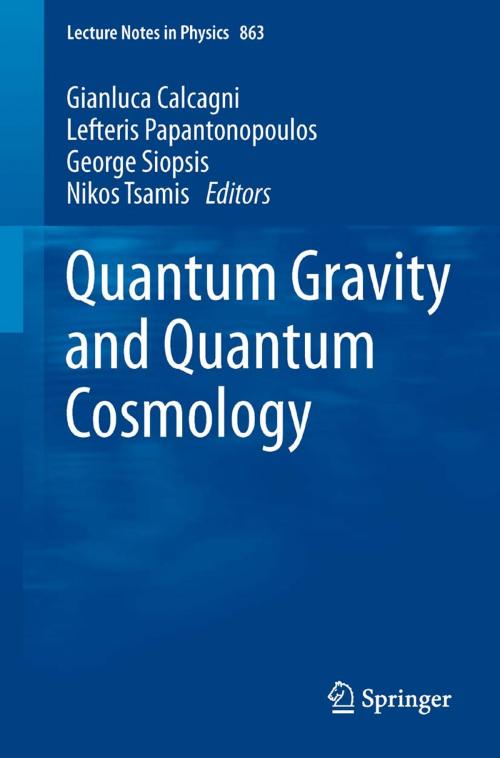Quantum Gravity and Quantum Cosmology
Nonfiction, Science & Nature, Science, Physics, Gravity, Astronomy| Author: | ISBN: | 9783642330360 | |
| Publisher: | Springer Berlin Heidelberg | Publication: | October 31, 2012 |
| Imprint: | Springer | Language: | English |
| Author: | |
| ISBN: | 9783642330360 |
| Publisher: | Springer Berlin Heidelberg |
| Publication: | October 31, 2012 |
| Imprint: | Springer |
| Language: | English |
Quantum gravity has developed into a fast-growing subject in physics and it is expected that probing the high-energy and high-curvature regimes of gravitating systems will shed some light on how to eventually achieve an ultraviolet complete quantum theory of gravity. Such a theory would provide the much needed information about fundamental problems of classical gravity, such as the initial big-bang singularity, the cosmological constant problem, Planck scale physics and the early-time inflationary evolution of our Universe.
While in the first part of this book concepts of quantum gravity are introduced and approached from different angles, the second part discusses these theories in connection with cosmological models and observations, thereby exploring which types of signatures of modern and mathematically rigorous frameworks can be detected by experiments. The third and final part briefly reviews the observational status of dark matter and dark energy, and introduces alternative cosmological models.
Edited and authored by leading researchers in the field and cast into the form of a multi-author textbook at postgraduate level, this volume will be of benefit to all postgraduate students and newcomers from neighboring disciplines wishing to find a comprehensive guide for their future research.
Quantum gravity has developed into a fast-growing subject in physics and it is expected that probing the high-energy and high-curvature regimes of gravitating systems will shed some light on how to eventually achieve an ultraviolet complete quantum theory of gravity. Such a theory would provide the much needed information about fundamental problems of classical gravity, such as the initial big-bang singularity, the cosmological constant problem, Planck scale physics and the early-time inflationary evolution of our Universe.
While in the first part of this book concepts of quantum gravity are introduced and approached from different angles, the second part discusses these theories in connection with cosmological models and observations, thereby exploring which types of signatures of modern and mathematically rigorous frameworks can be detected by experiments. The third and final part briefly reviews the observational status of dark matter and dark energy, and introduces alternative cosmological models.
Edited and authored by leading researchers in the field and cast into the form of a multi-author textbook at postgraduate level, this volume will be of benefit to all postgraduate students and newcomers from neighboring disciplines wishing to find a comprehensive guide for their future research.















